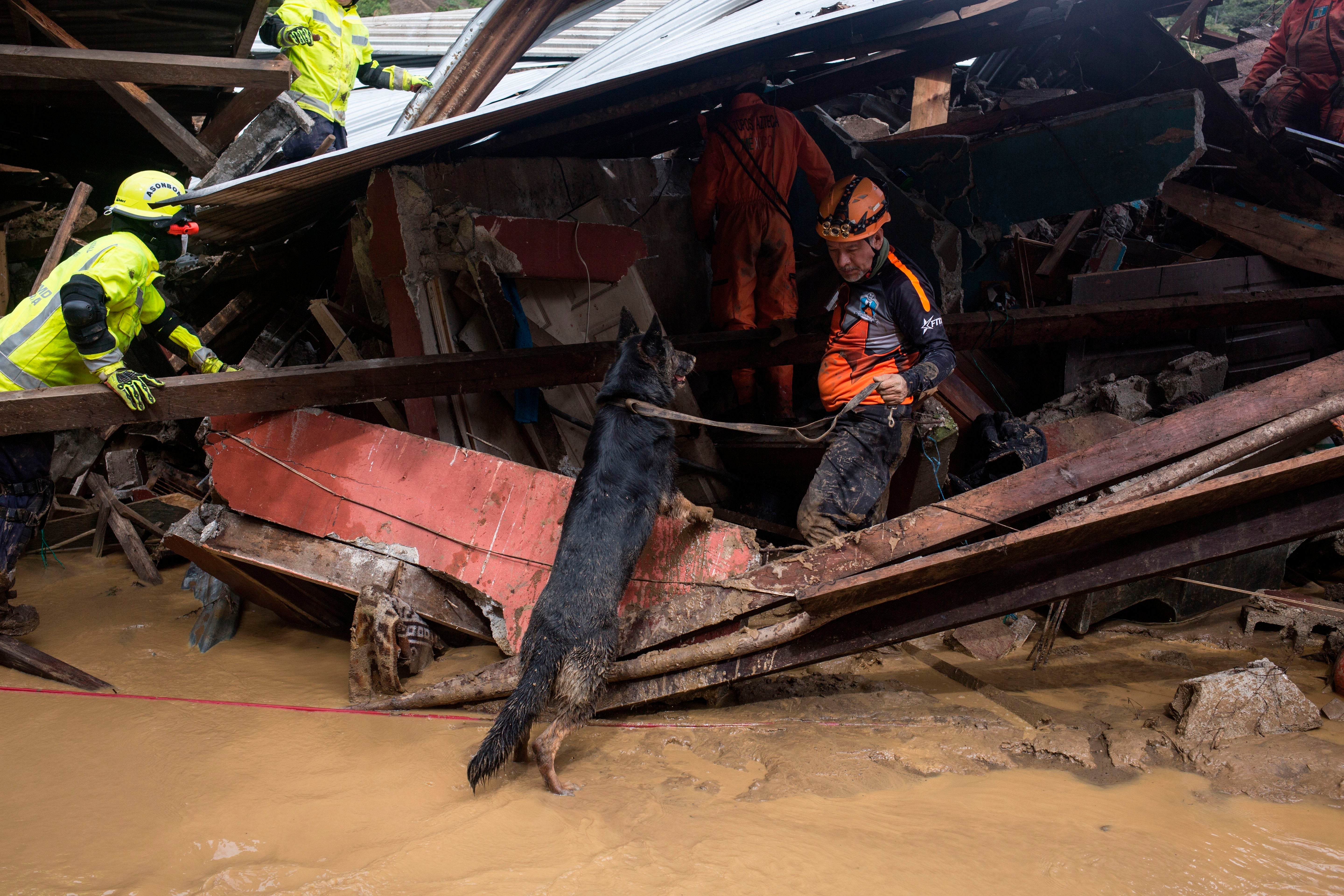Guatemala landslide could be final resting place for many
Days after a landslide buried half the community of Queja in central Guatemala, rescuers have recovered only a handful of the more than 100 people believed to be buried there

Your support helps us to tell the story
From reproductive rights to climate change to Big Tech, The Independent is on the ground when the story is developing. Whether it's investigating the financials of Elon Musk's pro-Trump PAC or producing our latest documentary, 'The A Word', which shines a light on the American women fighting for reproductive rights, we know how important it is to parse out the facts from the messaging.
At such a critical moment in US history, we need reporters on the ground. Your donation allows us to keep sending journalists to speak to both sides of the story.
The Independent is trusted by Americans across the entire political spectrum. And unlike many other quality news outlets, we choose not to lock Americans out of our reporting and analysis with paywalls. We believe quality journalism should be available to everyone, paid for by those who can afford it.
Your support makes all the difference.Days after a landslide buried half the community of Queja in central Guatemala rescuers have recovered only a handful of the more than 100 people believed to be buried there.
The location is so remote and the conditions so perilous that Queja could become the latest in a string of Guatemalan disaster sites that become the final resting places of their victims.
Around midday Thursday, residents in the farming town of about 1,200 Poqomchi Maya were just about to have lunch when the mountainside above them gave way, sweeping the wooden and tin-roofed down the mountain and burying them under feet of orange mud and debris.
It had been raining heavily for days as Tropical Depression Eta passed. Emilio Caal, a farmer who survived the slide, said 40 members of his family were missing.
It took a day just for rescuers to reach the scene because other landslides blocked highways. Supplies for survivors had to be flown in by helicopter.
Guatemala’s national disaster management agency on Monday tallied 33 dead and 103 missing as a result of Eta’s rains across the country.
Alejandro Maldonado, former director of that agency, noted Guatemala has ranked among the highest risk countries for natural disasters in hemisphere, according to the World Risk Index.
“It is a structural problem that is linked no only the threat or the probability of producing elements like Eta, but rather other factors that make us vulnerable and are directly tied to the development of the country,” he said.
Communities don’t have the funds to invest in mitigation measures necessary to better develop their communities. Remote communities lack adequate planning, he said. Deforestation is another factor in destabilizing mountainsides.
In 2018, the Volcano of Fire in southern Guatemala erupted, killing some 201 people. Relatives said there were at least another 1,000 victims buried under debris. Officially, more than 200 are missing.
In 2015, a landslide in the Cambray neighborhood inside the capital killed 250 and left about 70 missing. That location had been declared dangerous before the slide, but local authorities allowed homes to be built there.
In 2009, in a community called Los Chorros, just six miles (10 kilometers) from Queja, a landslide covered the highway, killing more than 35 people and leaving some 20 missing. The zone lives under the constant threat of landslides.
At some point the searches are called off and the victims remain buried over relatives’ objections. Sometimes the sites are declared “sacred ground,” other times that is just the de facto result.
Authorities in Queja are deciding what to do. Landslides have continued in the area, sometimes forcing them to evacuate rescuers from the debris field.
“There is never going to be development in Guatemala nor reduction of poverty if there is not an effort to reduce the risk of disasters,” and that way save lives, Maldonado said.